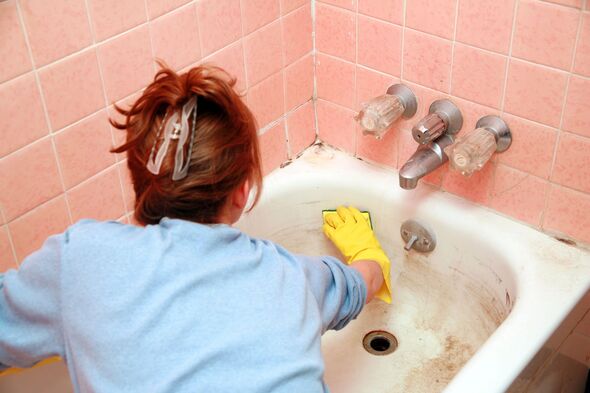Health
UK Households Urged to Test for Hidden Black Mould Threat

Households across the UK have received a warning about the dangers of black mould, with experts from the home heating company Air To Heat urging residents to conduct a simple test to uncover potential health risks. This advisory highlights that black mould is not merely a cosmetic issue, as it releases invisible spores that can cause significant respiratory problems.
Understanding the Risks of Black Mould
Bathrooms are particularly susceptible to mould due to their combination of heat, humidity, and often inadequate ventilation. Steam from hot showers can elevate humidity levels, creating an ideal environment for mould to thrive, especially when windows are closed or extractor fans remain unused. Air To Heat emphasizes that many individuals may be unaware of the presence of mould spores, as they are typically invisible. Inhalation of these spores can lead to lung irritation, triggering symptoms such as coughing, sneezing, and more severe complications for vulnerable populations.
Children, the elderly, and individuals with asthma or weakened immune systems are at heightened risk. Prolonged exposure to mould spores has been associated with breathing difficulties and infections that may require medical intervention.
A Simple Home Test Gains Popularity
To assist households in identifying the presence of airborne mould, experts are recommending a straightforward home test that has gained traction on social media platforms like TikTok. This viral method involves placing a petri dish in the bathroom for several hours. Once sealed and kept in a warm, dark environment, any airborne spores will settle and begin to grow, providing a visual indication of their presence.
Thousands have participated in this test, sharing their results online. Many users expressed surprise at discovering mould spores in their bathrooms, while professional mould inspectors cautioned that the test does not necessarily reflect the severity of a mould issue. It is commonplace for mould spores to exist in most homes, meaning growth in a petri dish could occur even with low mould levels.
Despite this, the test has heightened awareness of how easily mould spores can proliferate, particularly during the colder months when bathrooms are kept warm and humid.
Air To Heat also points out that heating systems can exacerbate mould growth if not combined with adequate ventilation. Warm air accelerates mould proliferation, making it crucial to balance temperature with airflow to mitigate the spread of spores.
Preventive Measures to Combat Mould
Experts recommend several practical strategies to reduce the risk of mould development in homes. These include:
- Opening a window or operating an extractor fan after showers to enhance airflow.
- Wiping down wet surfaces promptly to eliminate moisture.
- Cleaning corners and grout regularly, as these areas are prone to mould growth.
- Maintaining heating systems to prevent excess dampness in the home.
While performing the home test is a valuable initial step, Air To Heat stresses that prevention and proper airflow are essential for safeguarding health, particularly as the colder months approach. Addressing these concerns proactively can help ensure a healthier living environment for all household members.
-

 Health3 months ago
Health3 months agoNeurologist Warns Excessive Use of Supplements Can Harm Brain
-

 Health3 months ago
Health3 months agoFiona Phillips’ Husband Shares Heartfelt Update on Her Alzheimer’s Journey
-

 Science1 month ago
Science1 month agoBrian Cox Addresses Claims of Alien Probe in 3I/ATLAS Discovery
-

 Science1 month ago
Science1 month agoNASA Investigates Unusual Comet 3I/ATLAS; New Findings Emerge
-

 Science4 weeks ago
Science4 weeks agoScientists Examine 3I/ATLAS: Alien Artifact or Cosmic Oddity?
-

 Entertainment4 months ago
Entertainment4 months agoKerry Katona Discusses Future Baby Plans and Brian McFadden’s Wedding
-

 Science4 weeks ago
Science4 weeks agoNASA Investigates Speedy Object 3I/ATLAS, Sparking Speculation
-

 Entertainment4 months ago
Entertainment4 months agoEmmerdale Faces Tension as Dylan and April’s Lives Hang in the Balance
-

 World3 months ago
World3 months agoCole Palmer’s Cryptic Message to Kobbie Mainoo Following Loan Talks
-

 Science4 weeks ago
Science4 weeks agoNASA Scientists Explore Origins of 3I/ATLAS, a Fast-Moving Visitor
-

 Entertainment4 months ago
Entertainment4 months agoLove Island Star Toni Laite’s Mother Expresses Disappointment Over Coupling Decision
-

 Entertainment3 months ago
Entertainment3 months agoMajor Cast Changes at Coronation Street: Exits and Returns in 2025









